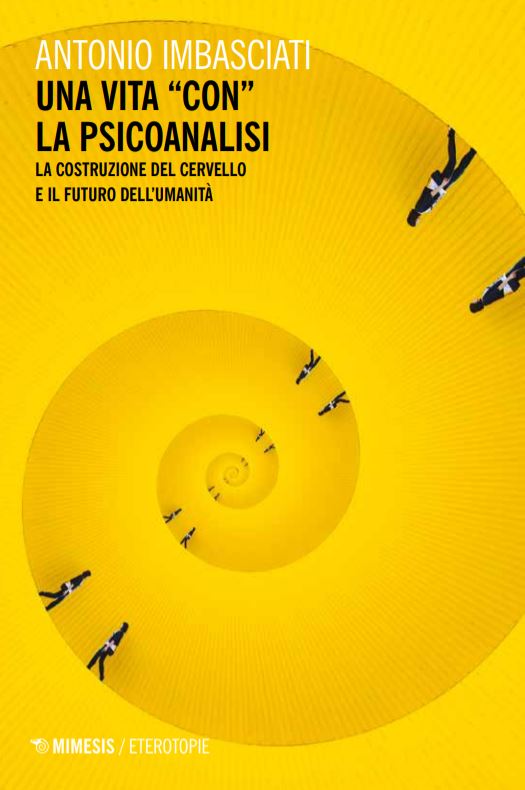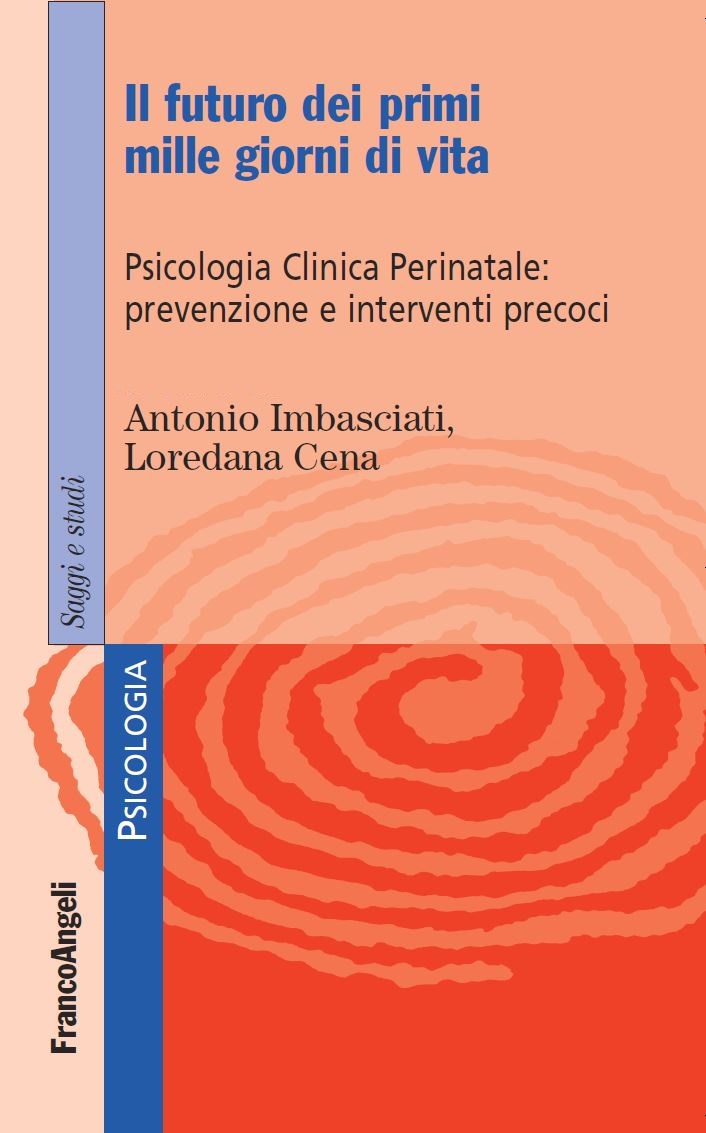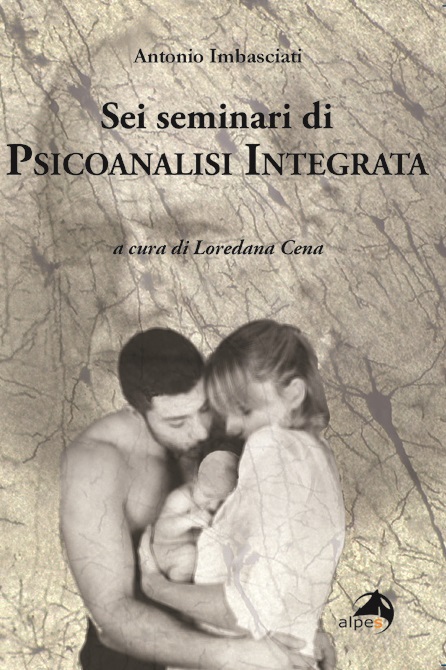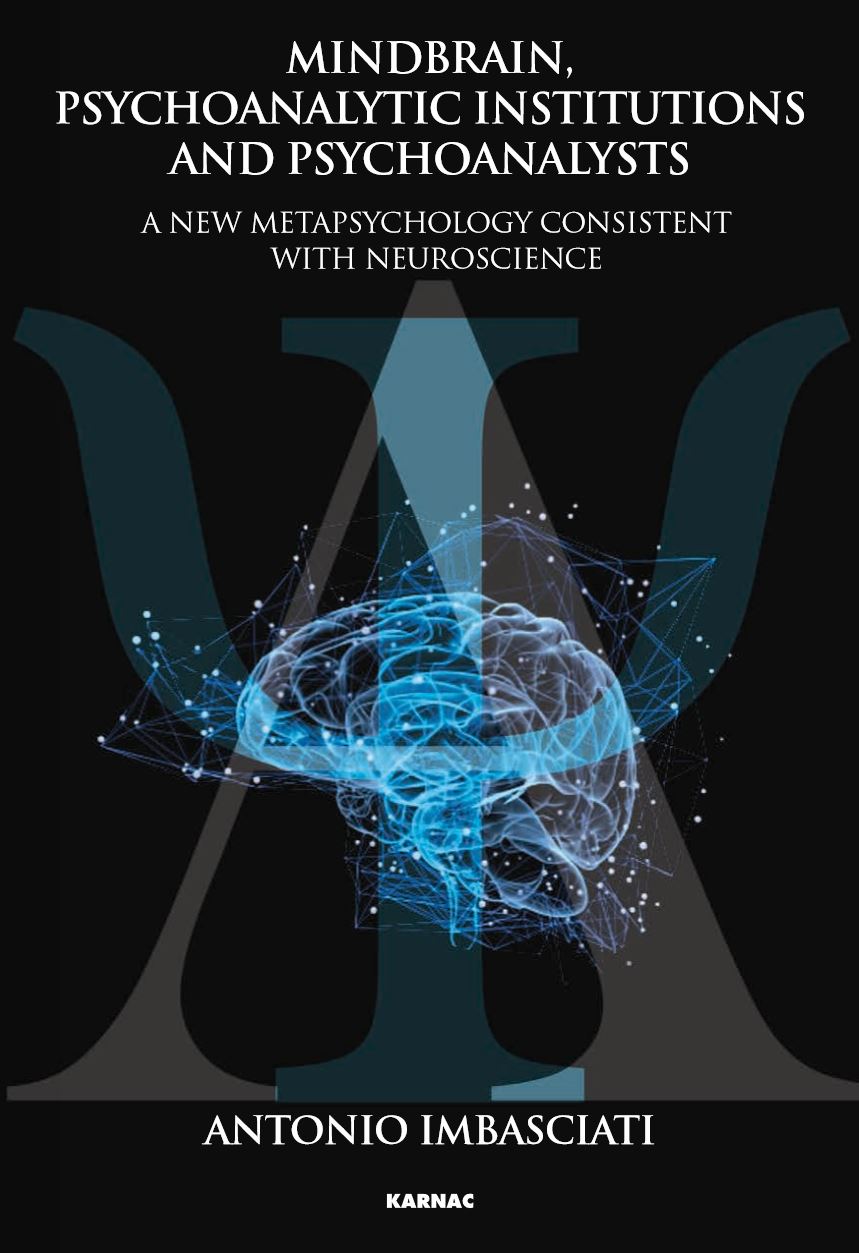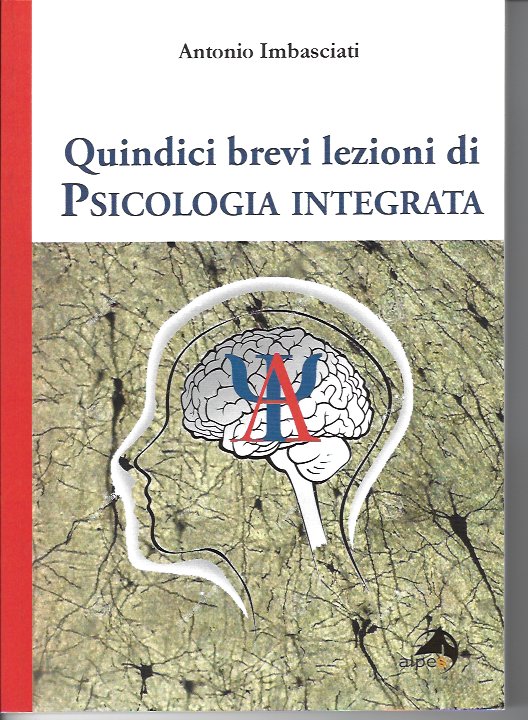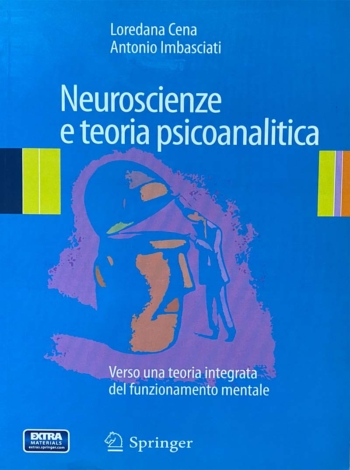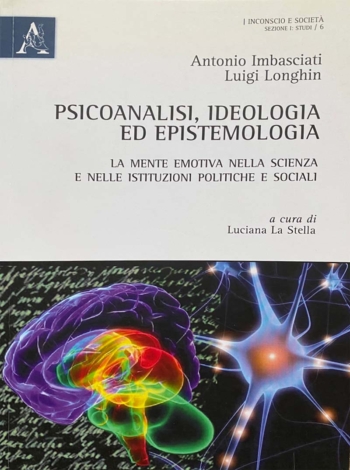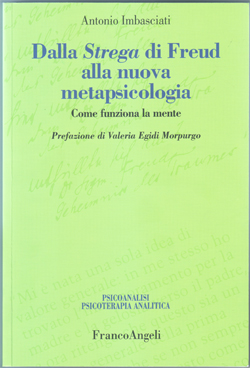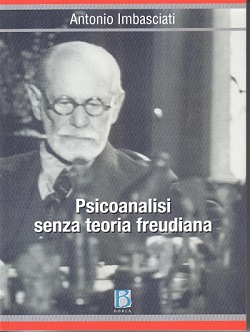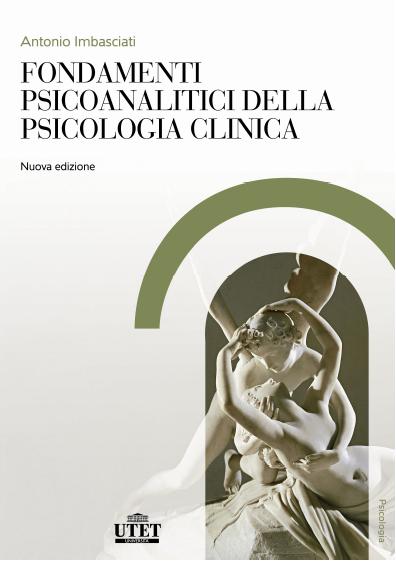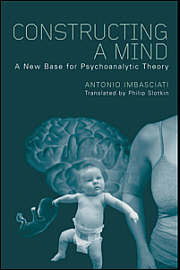Printed books
[Of the area of competence 6. Criticism of Freudian Metapsychology]The author, psychoanalyst and university professor now Emeritus (www.imbasciati.it), in his eighty-third year of an intense scientific life, intended to leave a sort of inheritance of his interior “passion”, imbued with his life events, which led him to investigate the mind and the brains of humans. His life took place in an affective-emotional inner maturation, […]
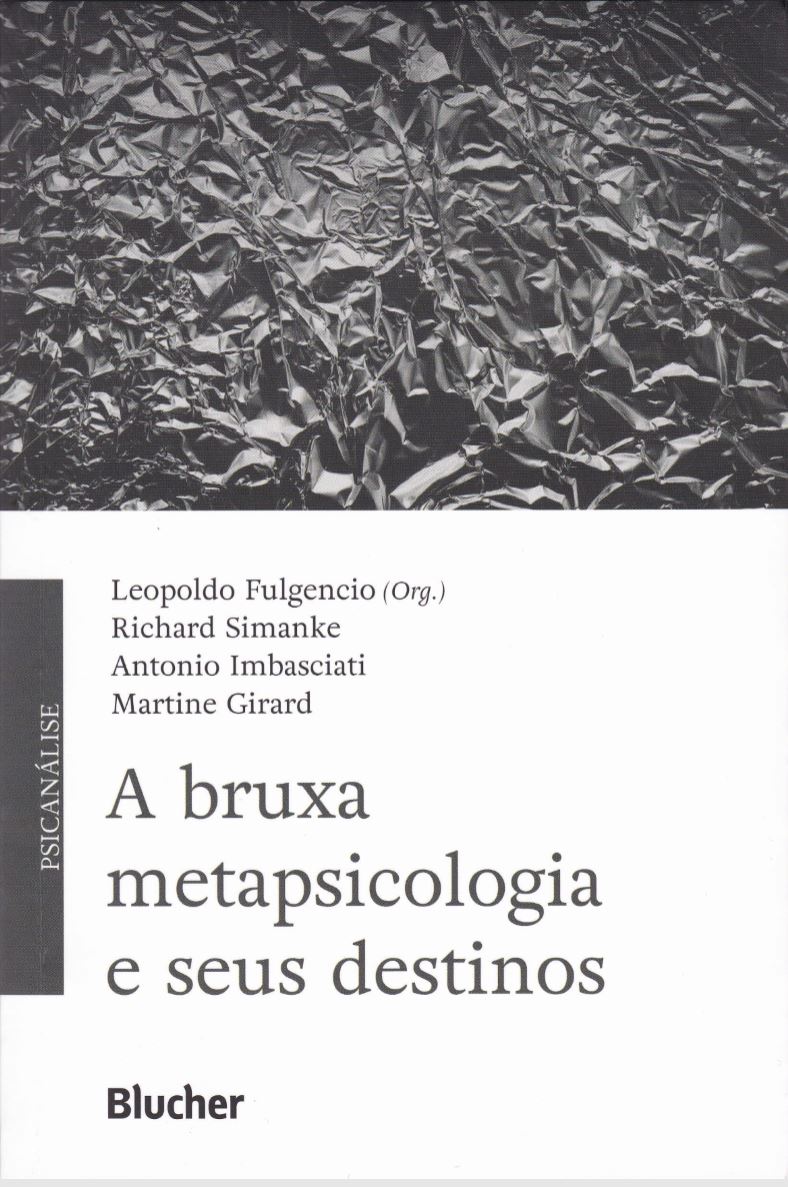
In the first thousand days of life, counting from conception, a first individual functional matrix – synaptic networks – is formed which will condition every subsequent elaboration of the life experiences of that individual and therefore every further construction of functionality in the individual’s brain, i.e. every subsequent neuro-psycho-somatic development of that person. This first […]
Freud founded psychoanalysis since more a century. His invention of a particular method in seeking into the mind allowed him a very important discovery and the constitution of a new science, which he expected to be developed.
In this last book (www.imbasciati.it) I have collected and tried to summarize the ideas I have developed by integrating different sciences of the mind during my long experience as a psychoanalyst, a researcher, then a professor, a trainer as well as a director of a university school. Throughout my professional life I aimed at systematizing, integrating and possibly unifying the diverse theories on the origins and functioning of the mind. In psychoanalysis these theories – although they were formulated over a century ago – are still mixed and confused in a state of inadequacy both in terms of epistemology and general culture. In my life, psychoanalysis has been the field where I have, most passionately, found implicit scientific limits in the institutions which have as their explicit goal the development of the science that Freud founded one-hundred years ago. But this is the case everywhere: Institution, as Elliott Jacques said, works against Organization…
In last ten years (from ‘2000) the Italian State University underwent progressive economic restrictions, due to the general economic crisis.
Today psychoanalytic clinical practice is not that Freud’s. Infant and infant-with-mother/parents psychoanalysis opened up large perspectives that have deeply affected the whole psychoanaltic theory and practice. Psychoanalytic clinical practice changed and progressed greatly. But in its theoretical frame today psychoanalysis has a number of concepts and theories, so that a confusion and different laguages have developed. This is due to an obstinate almost religious preservation of old concepts along new ones. In particular energy-drive concepts of Freud’s Metapsychology contradict the progress of current psychoanalysis, and yet they are used. (…)
This book is a group study work about the possibility that psychoanalysis and epistemology can reveal ideologies in social and political institutions. An ideology can infiltrate into science too and scientific literature. Many contributions try to analyze violence and how it may be concealed in social media and istitutions, and may explode in the long term. An essay questions if any ideology may be contained in psychoanalysis too. Some chapters outline the psychoanaliytc Institution resistence to openly express that the origin and the functioning of the mind cannot be explained today by Freud’s energy-drive theory: his Metapsychology has not even consilience today with neuroscience and psychoanalytic clinical practice even. From contemporary psychoanalytic clinical practices and from neuroscience a new metapsychology can be formulated, as described in this book. (…)
In Freud’s time “psychology” was a proper psychology of consciousness: it meant what one could consciously know about himself. Freud discovered unconscious events: he must explain to his contemporary scientists how these phenomena could exsist an how an unconscious mind might function. He wrote his metapsychology (1915): “meta” (=beyond) would say that mind could be considered also beyond consciouseness psychology. He supposed that the unconscious was moved by an instinctual force (libido) for which he used the german word “trieb” (=push). This word was hardly transalated as “drive” and in neolatin as“pulsion” . (…)
Psychoanalysis changed since Freud’s time. Nowadays psychoanalysts work in a very different way from hundred years ago. A big development happened in clinical practice, but theory was disregarded. As a consequence, people who don’t work in the psychoanalytic field cannot know the theories which are implicit in clinical practice and hold on to the only knowledge that Freud outlined. In his Metapsychology the Master pointed out his energy-drive explication of the functioning of the mind: it was syntonic with the sciences of his time, it was easy to understand and became popular, as the specific schematic pcture of psychoanalysis. The Psychoanalytical Organizations (IPA) carefully attended to the clinical training of their members, but they did not promote the explicitation of new theories. Mostly, they did not promote a formulation of a theory that could be understood by everyone and characterized psychoanalysis, like Freud had been able to do for his time. As a consequence, we still find a popular picture of psychoanalysis which is obsolete and open to criticism, as it is not yet syntonic with what people may know about science. Today this bad image damages the whole field of psychoanalysis, despite its progress. (…)
Great misunderstanding exists when trying to comprehend what is meant by Clinical Psychology and its connections with Psychoanalysis. Just as vast is the misunderstanding of psychoanalysis itself: people talk about drive, Oedipus, libido, super ego and repression as if these were Freud’s “discoveries”. In fact, they are not discoveries at all, but concepts by which Freud tried to construct a theory –his metapsychology– using the means available at the time to explain what his ingenious method of exploration had found out and described in the clinical field. There is great confusion about what is meant by “discovery”, or rather by “theory” or “method”, just as there is confusion about the description of a phenomena and its explanation. Discoveries remain, theories change and methods develop. (…)
Psychoanalysis could be successful not merely for its clinical value – to cure unexplained syndromes that were considered incurable– or for its method, judged very ‘strange’ and not scientific, but also for the theory that Freud created to explain the origins and the functioning of the mind: the Drive Theory. (…)

